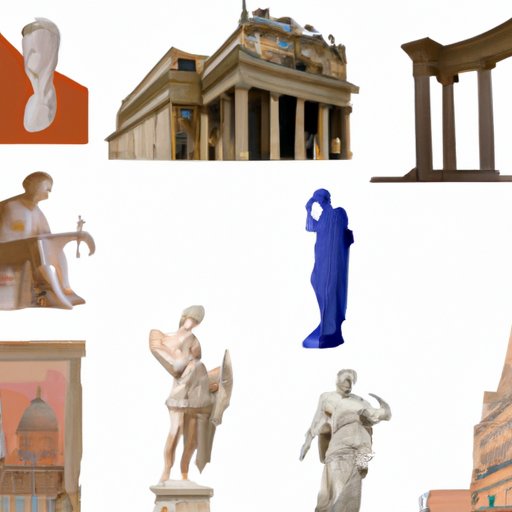Introduction
Western culture is a broad term used to refer to the traditions, beliefs, values, customs, and social norms shared by the people of Europe and North America. This article will explore the various aspects of this culture, including its historical development, impact on society, artistic contributions, and religious influences.

A Historical Overview of Western Culture
The origins of Western culture can be traced back to ancient Greece and Rome. These societies developed a range of philosophies, art forms, and architectural styles that would become the foundations of modern Western culture. During the Middle Ages, Christianity became the dominant religion in Europe and had a major influence on the development of Western culture. The Renaissance period saw a revival of classical Greek and Roman ideas and values, which further shaped Western culture.
During the Age of Enlightenment, a new set of ideas emerged that focused on individualism, rationalism, and progress. This period also witnessed the rise of modern science and technology, which had a profound effect on Western culture. The Industrial Revolution of the 18th and 19th centuries brought about dramatic changes in the way people lived and worked, leading to the emergence of the modern capitalist economy.
Exploring the Impact of Western Culture on Society
Western culture has had a significant impact on the development of social norms and institutions. For example, democracy, the rule of law, and respect for human rights are all core principles of Western culture. Some of the most influential cultural values include individualism, materialism, consumerism, and secularism. These values have been embraced by many countries around the world, making them an integral part of global culture.

Examining the Social and Political Roles of Western Culture
Western culture has played an important role in shaping government structures and policies. For example, many nations have adopted the concept of constitutional democracy, which is based on the principles of limited government, individual rights, and the rule of law. Western culture has also been influential in international relations, with many countries embracing the idea of free trade and open markets.
Understanding the Artistic Contributions of Western Culture
Western culture has made significant contributions to the arts, particularly in the fields of music and literature. Famous composers such as Mozart, Beethoven, and Bach have had a lasting influence on the development of classical music. Writers such as William Shakespeare, J.R.R. Tolkien, and Jane Austen have produced works of literature that are widely read and admired. Visual arts and architecture have also been heavily influenced by Western culture, with iconic pieces such as the Mona Lisa and the Eiffel Tower being some of the most recognizable symbols of the culture.

Analyzing the Economic Aspects of Western Culture
The Industrial Revolution of the 18th and 19th centuries saw the emergence of capitalism as the dominant economic system in the West. This period marked the beginning of mass production, which led to increased economic growth and prosperity. The development of international trade and globalization has enabled Western businesses to expand their markets and compete on a global scale.
Investigating the Influence of Religion in Western Culture
Religion has long been a major influence on Western culture. Christianity is the dominant religion in the West, and its teachings have shaped the values, beliefs, and practices of many countries. However, religious freedom and tolerance are also important principles of Western culture, allowing people of different faiths to coexist peacefully.
Conclusion
Western culture has had a profound influence on the world, shaping the values, beliefs, and practices of many countries. Its historical roots can be traced back to ancient Greece and Rome, and its impact has been felt in areas such as government, politics, art, economics, and religion. By understanding the various aspects of Western culture, we can gain a better understanding of our past and present.
(Note: Is this article not meeting your expectations? Do you have knowledge or insights to share? Unlock new opportunities and expand your reach by joining our authors team. Click Registration to join us and share your expertise with our readers.)
